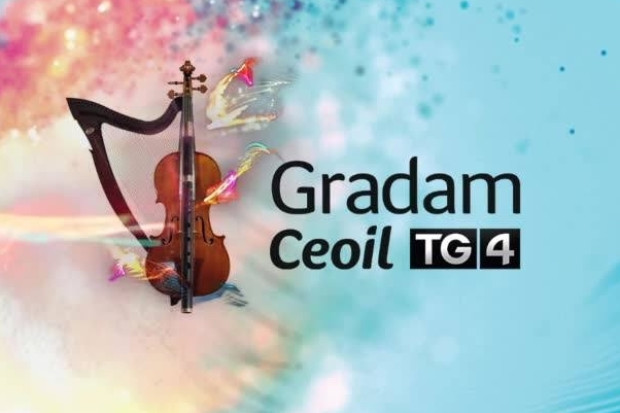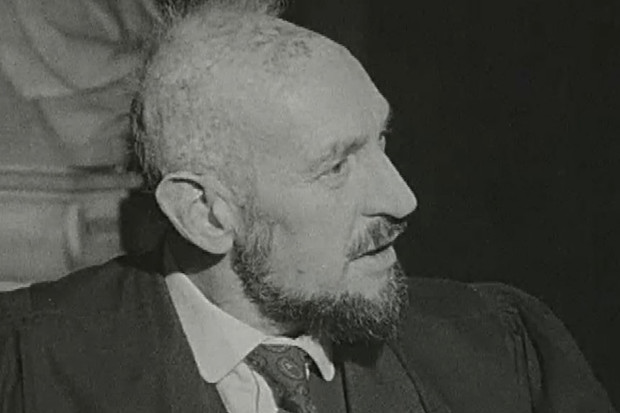
Mick Moloney (Photo: National Endowment for the Arts/Tom Pich)
RIP Mick Moloney
The musician and scholar Mick Moloney has died in New York. He was 77.
Moloney was a significant figure on the Irish-American music scene for four decades and central to the renaissance of Irish traditional music in the States during that time. His many activities included performing and recording, teaching and lecturing, television presenting, organising concerts and tours, and record producing.
Born in Limerick in 1944, Moloney was influenced early on by the musical culture of Sliabh Luachra through his grandmother. His musical interests developed when at the age of fourteen he heard records of New York groups such as the Weavers and the Almanac Singers, as well as Woody Guthrie and Lonnie Donegan. In his book Far from the Shamrock Shore, he recalled:
I liked the songs and the stories they told. The passionate feelings those songs awoke in me led inexorably to the great local musicians and singers in the southwest of Ireland where I had lived, to the songs they sang and the tunes they played, and ultimately to a profound sense of my own heritage and culture.
He began learning the banjo at 16 and attended sessions in County Clare. He also started singing and playing guitar and mandolin. Moloney was influenced by the Dublin singer Frank Harte and in the mid-1960s he formed the Emmet Folk Group with Dónal Lunny and Brian Bolger, and in 1967 joined The Johnstons, a family group from Slane, Co. Meath, which had already had a hit in Ireland with Ewan MacColl’s ‘The Travelling People’. Moloney made a number of recordings with the group between 1968 and 1971, including their uptempo version of Joni Mitchell’s ‘Both Sides Now’, which charted in the States.
In 1973, Moloney emigrated to America and in the same year he released We Have Met Together, an album of songs and tunes on the Transatlantic label. He later recalled that, at that time, traditional Irish music was not as popular in the States, but the 1970s were to see a revitalisation of the genre in the country. A turning point, he later wrote, was the 1977 television dramatisation of Alex Haley’s book Roots: ‘The television series gripped the imagination of the nation and set in motion a search for cultural roots and heritage among Americans of all ethnic backgrounds.’ Up until then, he said, ‘Shamrocks, shillelaghs and green beer were fine as long as it didn’t go too much further than that. But in the [1970s] there was a definite change. At an official level the notion of America as a multi-cultural society received sanction for the first time.’ State funding for ethnic arts increased over the next two decades and the Irish community was well positioned to benefit due to its many established societies and organisations.
In the 1970s, Moloney released two albums with Derry fiddle player Eugene O’Donnell and these were followed by his second solo recording Strings Attached (1980), which was the first album of traditional Irish music entirely on banjo and mandolin and contained two tunes by the young Chicago fiddle player Liz Carroll. At the same time he was also producing albums for musicians such as James Keane and Billy McComiskey, compiling an anthology of tunes by fiddle player and composer Ed Reavy, had recently established the group The Green Fields of America, was touring, writing for magazines and scholarly journals, organising festivals and pursuing a doctorate at the University of Pennsylvania.
He encouraged the emerging generation of young Irish-American musicians, including Joanie Madden, Eileen Ivers and Séamus Egan. He was instrumental in the founding of the concert series in 1983 that led to the forming of the group Cherish the Ladies which features Madden, and he produced Egan’s debut recording Traditional Music of Ireland (1985) as well as Ivers and John Whelan’s adventurous Fresh Takes (1987). He also recorded There Were Roses (1985) with Robbie O’Connell and Jimmy Keane, which contained a classic version of the title track written by Tommy Sands.
Moloney received his PhD in folklore and folklife in 1992 and his dissertation was titled ‘Irish music in America: Continuity and Change’. He became Global Distinguished Professor at New York University and Glucksman Ireland House and lectured on the history of Irish-American music. He received the NEA National Heritage Fellowship, America’s highest honour in the traditional arts, in 1999; the Presidential Distinguished Service Award for the Irish Abroad from President Michael D. Higgins in 2013; and the TG4 Gradam Ceoil Rannpháirtíocht de Scoth (outstanding contribution award) in 2014. His recent albums explored early songs of the Irish-American community and included McNally’s Row of Flats (2006) and If It Wasn’t for the Irish and the Jews (2009). He published his book Far from the Shamrock Shore in 2002 with the Collins Press.
In a statement on Moloney’s death, President Higgins said:
His passing is a loss to the musical heritage of Ireland, to Irish America and to Irish music worldwide. … Mick made his love of music an integral part of his life’s work and his generosity of spirit in sharing his talents and passion for Irish music and culture will live on as part of his deep legacy. Sabina joins with me in sending our deep condolences to his family, friends, fellow lovers of music and his students at this sad time. Suaimhneas síoraí dá anam.
Subscribe to our newsletter here.
Published on 3 August 2022

















